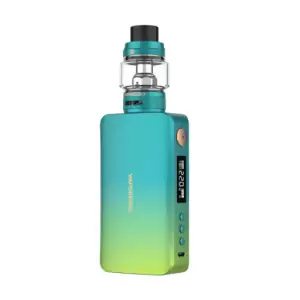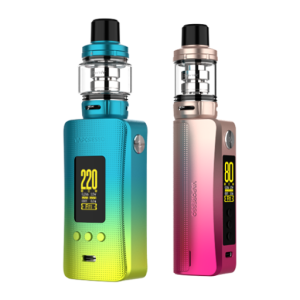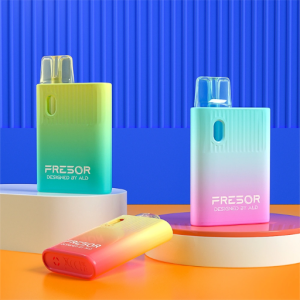The surge in popularity of disposable vapes among travelers is a trend that mirrors the broader global increase in vaping. These devices, valued for their convenience, ease of use, and variety of flavors, have become a favored choice for many looking to maintain their nicotine intake without the hassles of carrying rechargeable devices and e-liquid bottles. However, this rise in popularity comes with a crucial caveat for international travelers: the importance of understanding local laws and restrictions when vaping abroad.
Traveling with disposable vapes necessitates a careful consideration of destination-specific regulations. The legal landscape for vaping varies significantly across the globe, with rules ranging from complete bans in certain countries to specific restrictions on types, flavors, and usage in others. For travelers, ignorance of these laws can lead to unintended violations, resulting in fines, confiscation of devices, or even more severe legal consequences.
Furthermore, the act of vaping in unfamiliar locales also brings to light the need for cultural sensitivity and awareness. Practices considered acceptable in one’s home country may be viewed differently elsewhere, making respect for local customs and norms an essential aspect of responsible vaping while traveling.
As disposable vapes continue to gain traction among individuals seeking a convenient smoking alternative on the go, the onus is on travelers to ensure they are well-informed about their destinations’ vaping policies. This introductory overview sets the stage for a deeper exploration into navigating air travel with disposable vapes, understanding state-specific vape laws in the United States, and unraveling the complexities of international vaping regulations from the European Union to Asia, and from Australia and New Zealand to the diverse continent of Africa.

Navigating Air Travel with Disposable Vapes
For travelers who vape, understanding how to navigate air travel with disposable vapes is essential. Airports and airlines have specific regulations that dictate how vaping devices, including disposables, should be packed and handled during travel. Adhering to these guidelines not only ensures compliance with security measures but also facilitates a smoother travel experience.
Guidelines for Packing Disposable Vapes in Carry-on Luggage
- Carry-On Luggage Only: Disposable vapes must be packed in carry-on luggage. The FAA prohibits these and other electronic nicotine delivery systems (ENDS) in checked baggage due to fire safety concerns related to their batteries.
- Battery Safety: While disposable vapes are designed for single use and cannot be recharged, they still contain lithium batteries, which are subject to air travel regulations. Ensuring that devices are protected from accidental activation and damage is crucial.
- Quantity Limitations: Some airlines may impose limits on the number of disposable vapes a passenger can carry. It’s advisable to check with the airline before travel to confirm any specific restrictions.
Airport Security Regulations and Airline Policies on Vaping Devices
- Security Screening: Like other electronic devices, disposable vapes may need to be removed from carry-on luggage and placed in a bin for X-ray screening at airport security checkpoints.
- No Vaping on Board: Using disposable vapes or any vaping device on board the aircraft is universally prohibited. This rule aligns with regulations against smoking in-flight, aimed at ensuring passenger comfort and safety.
- Airline-Specific Policies: Beyond the general guidelines, some airlines may have their own specific policies regarding the transport of disposable vapes. Travelers should review their airline’s regulations to avoid any issues during boarding or in-flight.
Navigating air travel with disposable vapes requires a clear understanding of both airport security protocols and individual airline policies. By following the established guidelines for packing and carrying these devices, travelers can ensure they remain compliant with air travel regulations, avoiding potential delays or legal complications. Always remember to check the latest rules before your trip, as policies can evolve in response to changing safety standards and regulatory landscapes.
United States: Understanding State-Specific Vape Laws
In the United States, the regulatory environment for disposable vapes is complex, shaped by both federal guidelines and a mosaic of state-specific laws. For travelers within the U.S., navigating these regulations is crucial to ensure compliance and avoid unintended legal issues.
Overview of TSA Guidelines for Traveling with Disposable Vapes
The Transportation Security Administration (TSA) sets forth guidelines for passengers traveling with disposable vapes:
- Carry-On Requirement: Passengers are required to pack all electronic nicotine delivery systems, including disposable vapes, in carry-on luggage. These items are not permitted in checked baggage due to safety concerns.
- Battery Safety Precautions: While specific to rechargeable devices, TSA’s emphasis on battery safety also implicitly covers disposable vapes, which contain lithium batteries. Devices should be protected from accidental activation or damage.
State-by-State Breakdown of Vaping Restrictions That Could Affect Travelers
The U.S. features a diverse legal landscape when it comes to vaping, with regulations varying significantly from one state to another:
- Flavor Bans and Sales Restrictions: Some states, such as Massachusetts, have implemented bans on flavored vaping products, including disposable vapes. These restrictions can affect the availability and types of products travelers can use within these states.
- Usage in Public Spaces: Many states and localities have extended smoking bans to include vaping, prohibiting the use of disposable vapes in indoor public places, workplaces, and, in some cases, outdoor public areas like parks and beaches.
- Age Restrictions: While the federal minimum age for purchasing tobacco and vaping products is 21, enforcement and additional restrictions may vary, impacting travelers under the age of 21.
For travelers within the United States, understanding the patchwork of state-specific laws governing disposable vapes is essential. Key considerations include:
- Researching Destination Laws: Prior to travel, individuals should research the vaping regulations of their destination state or local municipality to ensure compliance.
- Packing Accordingly: Given the variability in regulations, especially around flavors and public usage, packing disposable vapes that adhere to the destination’s laws is advisable.
- Respecting Public Space Restrictions: Being mindful of and adhering to restrictions on vaping in public spaces is not only a matter of legal compliance but also respect for local norms and the comfort of others.
Navigating the state-specific vape laws in the United States underscores the importance of preparation and awareness for vaping travelers. By staying informed and respectful of local regulations, individuals can enjoy a hassle-free travel experience while using disposable vapes.
European Union: Navigating the Tobacco Products Directive (TPD)
The European Union’s approach to regulating disposable vapes is encapsulated in the Tobacco Products Directive (TPD), which harmonizes legislation across member states while allowing for certain country-specific adjustments. Understanding the TPD is crucial for travelers within the EU, as it impacts the availability, packaging, and use of disposable vapes.
How the TPD Affects Disposable Vapes and What Travelers Need to Know
- Nicotine Limits: The TPD restricts the maximum nicotine concentration in disposable vapes to 20 mg/mL and limits the volume of liquid in any single device. Travelers should ensure their products comply with these limits to avoid issues when crossing borders.
- Packaging Requirements: Health warnings and ingredient lists are mandatory under the TPD, covering a significant portion of the packaging. Products must also be child-resistant and tamper-evident.
- Cross-border Sales: The directive regulates cross-border sales of tobacco and vaping products, including online purchases, requiring vendors to register and comply with the receiving country’s regulations.
Country-specific Regulations Within the EU That Could Impact Vaping Tourists
While the TPD provides a regulatory framework, individual EU countries may impose additional restrictions:
- Flavor Bans: Some member states have introduced bans on certain flavored disposable vapes, aiming to reduce their appeal to younger demographics.
- Public Usage: Regulations on where vaping is allowed vary significantly, with some countries including vaping under smoke-free laws, restricting their use in public indoor spaces, and others offering more lenient guidelines.
Navigating Vaping Laws in the European Union
For travelers in the EU, several strategies can ensure a smooth experience with disposable vapes:
- Research Before Travel: Understanding the specific regulations of your destination country is key. This includes not only the TPD compliance but also any additional national laws that might affect the use and availability of disposable vapes.
- Pack Accordingly: Ensure that any disposable vapes you bring meet the TPD standards and consider the local laws of your destination, especially regarding flavors and public usage.
- Be Mindful of Local Norms: Beyond legal considerations, being respectful of local norms and preferences around vaping can contribute to a more enjoyable travel experience.
Navigating the TPD and country-specific regulations in the European Union requires travelers to be well-informed and prepared. By adhering to these guidelines, individuals can enjoy the benefits of disposable vapes while respecting the laws and customs of EU member states.
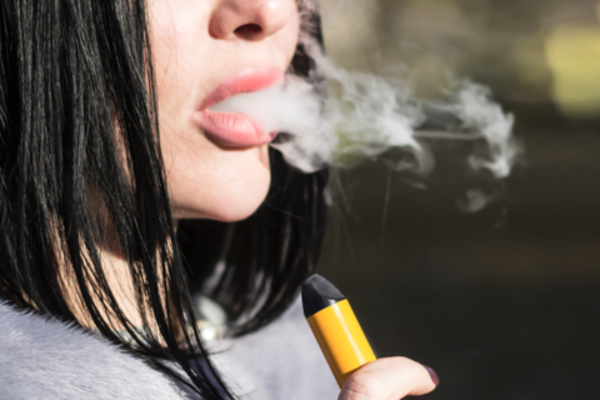
Asia: Diverse Regulations from Strict Bans to Open Markets
The regulatory landscape for disposable vapes in Asia is characterized by its diversity, ranging from strict bans in certain countries to more open markets in others. This variance reflects the wide range of cultural attitudes, public health policies, and legal frameworks across the continent, making it essential for travelers to be well-informed before visiting.
Examination of Countries with Strict Bans on Disposable Vapes
- Singapore: Singapore enforces a complete ban on the importation, sale, and use of disposable vapes. Travelers caught with vaping products can face significant fines and penalties, underscoring the city-state’s strict stance on tobacco control and public health.
- Thailand: Similarly, Thailand prohibits the sale and possession of disposable vapes, with strict enforcement and hefty fines for violations. Travelers are advised to respect these regulations to avoid legal complications during their visit.
Guidelines for Traveling in Vape-Friendly Countries like Japan
- Japan: Contrary to the strict bans in other Asian countries, Japan offers a more open market for disposable vapes, particularly those without nicotine. However, travelers should note that nicotine-containing vapes are regulated under pharmaceutical laws, requiring specific permissions for sale and use.
- Vaping Etiquette: Even in vape-friendly countries, it’s important to adhere to local vaping etiquette. In Japan, for example, vaping in public spaces is generally frowned upon, and users are encouraged to use designated smoking areas to respect cultural norms.
Navigating Vaping Laws in Asia
For travelers in Asia, understanding the diverse regulatory environment is crucial:
- Research Local Laws: Prior to travel, it’s essential to research the specific vaping regulations of the destination country. This includes bans, restrictions, and any required permissions for nicotine-containing products.
- Pack Responsibly: When traveling to vape-friendly countries, ensure that your disposable vapes comply with local regulations, particularly concerning nicotine content and packaging.
- Respect Local Customs: Being mindful of local customs and etiquette around vaping can help avoid offending residents or violating unwritten social rules, enhancing the travel experience.
Asia’s varied approach to disposable vapes reflects the importance of cultural, public health, and legal considerations in shaping vaping policies. By navigating these regulations with informed respect and compliance, travelers can ensure a smooth and enjoyable experience while respecting the diverse landscapes of vaping regulation across the continent.
Australia and New Zealand: Contrasting Approaches to Vaping
Australia and New Zealand present contrasting approaches to the regulation of disposable vapes, reflecting differing public health strategies and attitudes towards vaping as a harm reduction tool. Understanding these differences is crucial for travelers moving between these neighboring countries.
Australia’s Prescription Model for Nicotine Vapes
In Australia, the sale, possession, and use of nicotine-containing disposable vapes are tightly regulated. A distinctive feature of Australia’s approach is the requirement for a prescription for nicotine vapes, emphasizing their use as a cessation tool rather than a consumer product:
- Prescription Requirement: Individuals must obtain a prescription from a licensed healthcare provider to legally access nicotine disposable vapes. This regulation aims to control nicotine use and prevent youth access.
- Impact on Travelers: Visitors to Australia cannot legally purchase nicotine vapes locally without a prescription. Those traveling to Australia are advised to research the specific requirements for bringing nicotine disposable vapes into the country, including customs declarations and limits on quantities.
New Zealand’s More Liberal Stance on Disposable Vapes
Contrasting with Australia, New Zealand adopts a more liberal stance towards disposable vapes, recognizing them as a tool for smoking cessation. The regulatory environment in New Zealand is designed to provide adult smokers with access to vapes while implementing safeguards to protect minors and non-smokers:
- Regulated Access: Disposable vapes are available for sale to adults, with regulations in place to ensure product safety and restrict marketing practices that target young people.
- Public Health Campaigns: New Zealand’s health authorities actively promote vaping as a less harmful alternative to smoking, backed by campaigns and resources to support smokers looking to transition to vaping.
Navigating Vaping Laws in Australia and New Zealand
For travelers between Australia and New Zealand, understanding the contrasting regulatory landscapes is key:
- Check Legal Requirements: Before traveling, verify the legal requirements for carrying disposable vapes, especially those containing nicotine, into and out of each country.
- Be Aware of Local Regulations: Familiarize yourself with local laws regarding where you can vape, as both countries have restrictions on vaping in public spaces to protect public health.
- Respect Cultural Attitudes: While legal frameworks provide formal guidelines, being mindful of cultural attitudes towards vaping can help ensure respectful interactions within each country.
The approaches of Australia and New Zealand to disposable vapes illustrate the broader debate on vaping regulation and harm reduction. By staying informed about these differences, travelers can navigate the regulations effectively, ensuring compliance and respecting public health objectives in both countries.
Africa: A Continent of Varied Vape Policies
Africa presents a mosaic of vape policies, reflecting the continent’s diverse cultural, legal, and public health landscapes. For travelers with disposable vapes, navigating this variety requires an understanding of the specific regulations that vary significantly from one country to another. Some African countries have embraced vaping as a less harmful alternative to smoking, offering regulated access, while others have imposed stringent restrictions or outright bans to protect public health.
Overview of African Countries with Notable Restrictions or Allowances for Disposable Vapes
- South Africa: South Africa stands out as one of the more vape-friendly countries on the continent, with a regulated market for disposable vapes. Regulations focus on limiting sales to minors and ensuring product safety, but adults can access vaping products relatively freely.
- Egypt: Egypt also allows the sale and use of disposable vapes, with a growing market and availability in urban areas. However, regulations around vaping are evolving, and there’s an emphasis on preventing underage vaping.
- Kenya: Kenya has implemented regulations that govern the sale and use of disposable vapes, with measures in place to protect public health while allowing adult smokers access to vaping products as smoking cessation aids.
- Uganda: In contrast, Uganda has taken a stricter stance on vaping, with significant restrictions on the importation, sale, and public use of disposable vapes. These measures reflect broader public health concerns about nicotine addiction and the potential appeal of vaping products to youth.
Tips for Complying with Local Vaping Laws While Traveling in Africa
- Research Before Travel: Given the varied legal landscape across Africa, researching the vaping regulations of your destination country is essential before embarking on your journey. This preparation can help avoid unintended legal issues.
- Pack Accordingly: Based on your research, pack disposable vapes that comply with the destination’s laws, considering factors like nicotine content and device type. Be mindful of the quantity, as some countries may have limits on the number of vaping products you can bring.
- Adapt to Local Norms: Beyond legal considerations, adapting to local cultural norms and attitudes toward vaping is crucial. In countries or areas where vaping is less common or viewed negatively, exercising discretion and respecting local sensibilities can enhance your travel experience.
Navigating the diverse policies on disposable vapes in Africa underscores the importance of being an informed and respectful traveler. By understanding and adhering to the specific regulations and cultural norms of each country, travelers can ensure a smooth and enjoyable experience while respecting the local public health and legal frameworks.
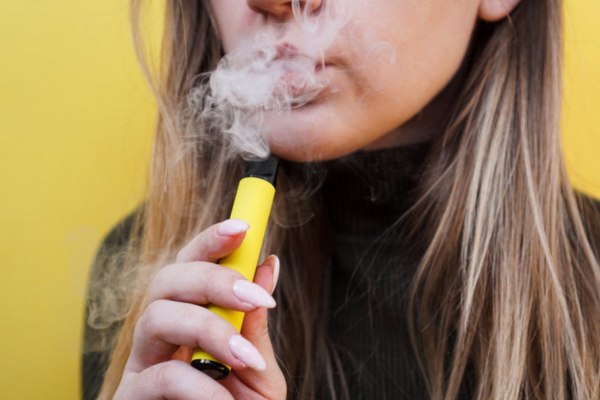
Legal Consequences of Violating Vape Laws Abroad
Travelers who choose to bring disposable vapes abroad must be acutely aware of the legal consequences that can arise from violating local vape laws. Across the globe, nations have implemented a variety of regulations governing the use, sale, and possession of vaping products, and ignorance of these laws offers no protection from their enforcement.
Potential Penalties and Legal Issues
Violating local vaping regulations can lead to a range of penalties, including but not limited to:
- Fines: Many countries impose monetary fines on individuals caught using, selling, or possessing disposable vapes in violation of local laws.
- Confiscation: Authorities may confiscate vaping devices found during routine checks or if individuals are suspected of breaking the law.
- Detainment and Legal Action: In more severe cases, especially where large quantities of disposable vapes are involved or regulations are particularly stringent, individuals may face detainment or legal action.
Real-world Examples of Tourists Facing Fines or Legal Action
- Singapore: Known for its strict stance on vaping, Singapore has levied substantial fines on individuals caught possessing or using disposable vapes. Tourists are not exempt from these laws, with cases of foreigners facing hefty fines for vaping.
- Thailand: Thailand’s complete ban on the sale and importation of vaping products has caught many tourists unaware, leading to fines and, in some cases, detainment for those found in possession of disposable vapes.
- Australia: Visitors to Australia may be surprised to find that nicotine disposable vapes require a prescription. Those found with such devices without proper documentation can face fines and the confiscation of their vapes.
Navigating International Vape Laws
To avoid legal complications while traveling with disposable vapes, consider the following guidelines:
- Research Destination Laws: Before traveling, thoroughly investigate the vaping regulations of your destination country. This includes laws regarding possession, use, and importation.
- Consider Leaving Vapes Behind: In countries with strict regulations or complete bans, it may be simpler and safer to leave your disposable vapes at home.
- Follow Local Guidance: If you choose to travel with disposable vapes, ensure they are packed according to airline regulations and be prepared to adhere to local laws upon arrival. When in doubt, opt for caution and respect the rules and norms of your host country.
Understanding and respecting the legal frameworks governing disposable vapes in different countries is not only a matter of legal compliance but also of cultural respect. By staying informed and cautious, travelers can enjoy their journeys without the added stress of legal repercussions related to vaping.
Conclusion: The Importance of Being an Informed Vaping Traveler
The exploration of vaping regulations across various global destinations from the United States to the European Union, Asia, Australia, New Zealand, and Africa emphasizes a critical point for travelers: the significance of being well-informed. As disposable vapes continue to surge in popularity, understanding and respecting the diverse legal and cultural landscapes becomes paramount for anyone looking to incorporate vaping into their travel experience.
Recap of Key Points on Traveling with Disposable Vapes
- Regulatory Diversity: The legal landscape for disposable vapes varies significantly across regions, highlighting the importance of researching destination-specific regulations before traveling.
- Packing and Transportation: Guidelines for packing disposable vapes, particularly concerning air travel, require careful attention to ensure compliance with both airline policies and destination laws.
- Local Laws and Customs: Beyond legal considerations, respecting local customs and norms related to vaping is essential for a respectful and trouble-free travel experience.
Final Thoughts on the Responsibility of Vapers to Respect Local Laws and Customs While Abroad
Travelers who vape bear the responsibility of navigating the complexities of international vape laws with diligence and respect. This responsibility extends beyond mere legal compliance to encompass a broader understanding of cultural sensitivities and public health considerations. By staying informed and adaptable, vapers can ensure their practices align with local expectations, fostering positive interactions and experiences.
The journey through the world’s diverse regulatory environments for disposable vapes underscores a universal truth: knowledge is key. Armed with the right information, travelers can make informed decisions that respect both the letter and the spirit of the laws in their destinations. This informed approach not only safeguards against legal issues but also contributes to the global dialogue on vaping with a sense of respect and understanding.
In conclusion, as the debate around vaping and its place in society continues to evolve, so too will the regulations that govern its use. For the vaping traveler, remaining vigilant, informed, and respectful of these changes is the best strategy for navigating the world with disposable vapes in tow.


